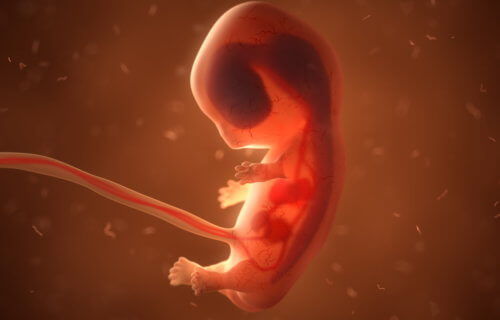JAKARTA, Indonesia — Although their use is sometimes controversial, scientists often look at stem cells as a potential miracle cure for many conditions. Now, a new clinical trial finds stem cells from a baby’s umbilical cord may save the most at risk of dying from COVID-19. Researchers in Indonesia say a treatment derived from non-altered versions of these stem cells significantly improves the survival rate among coronavirus patients already on a ventilator.
Their study reveals the treatment more than doubled the survival rate among COVID patients needing intubation. Those with chronic conditions, like diabetes, hypertension, or kidney disease, saw their odds of surviving a severe COVID infection rise by over four times.
In a double-blind, controlled, randomized study, 40 adult patients in intensive care and on a ventilator received the treatment intravenously. The infusions contained stem cells coming from the connective tissue of a human umbilical cord. Half of the patients received infusions not containing stem cells to serve as a control group.
The results reveal survival rates climbed by 2.5 times among patients receiving stem cells. Those with a pre-existing health problem, making them high-risk for COVID, saw their changes of beating coronavirus jump by 4.5 times. Moreover, researchers say the stem cell infusions did not cause any life-threatening complications or allergic reactions.
Stem cells quell the ‘cytokine storm’
Study authors note previous trials have discovered that umbilical cord cells could help patients survive and recover more quickly from COVID-19. The new report, however, is the first to test this on patients already on a ventilator due to COVID-19-induced pneumonia. The study also does not make use of any genetically-manipulated stem cells, which study authors say is a key difference.
“Unlike other studies, our trial used stem cells obtained through explants from actual umbilical cord tissue and we did not manipulate them to exclude ACE2, a cellular protein thought to be an entry point for COVID-19,” says Ismail Hadisoebroto Dilogo, professor of medicine at Cipto Mangunkusumo Central Hospital, in a media release.
Throughout the course of the pandemic, scientists have discovered that one of the main drivers of acute respiratory distress is the so-called “cytokine storm.” This reaction to COVID causes the human immune system to flood the body with inflammatory proteins.
“The exact cause of cytokine storm is still unknown, but our study indicates that the presence of non-manipulated umbilical cord stromal stem cells improves patient survival by modulating the immune system toward an anti-inflammatory immune state,” Dilogo explains.
New hope for critically ill COVID patients
There has been much debate over how beneficial intubation is for coronavirus patients. Some studies have even claimed that placing a patient on a ventilator during the pandemic is almost a death sentence. However, there is still no cure for the illness and study authors say it’s important find treatments which can save the most critically ill.
“Although our study focused on a small number of patients, we think this experimental treatment could potentially lead to an effective adjuvant therapy for COVID-19 patients in intensive care who do not respond to conventional supportive treatment,” Dilogo adds.
“This study, which assessed the potential therapeutic effect of human umbilical-cord mesenchymal stem cells on critically-ill COVID-19 patients, provides promising results that could inform a potential treatment to increase survival rates,” concludes Anthony Atala, M.D., Editor-in-Chief of the journal STEM CELLS Translational Medicine and Director of the Wake Forest Institute for Regenerative Medicine. “Having additional potential therapies, such as MSCs, could be highly beneficial for these patients.”
The findings appear in STEM CELLS Translational Medicine.
